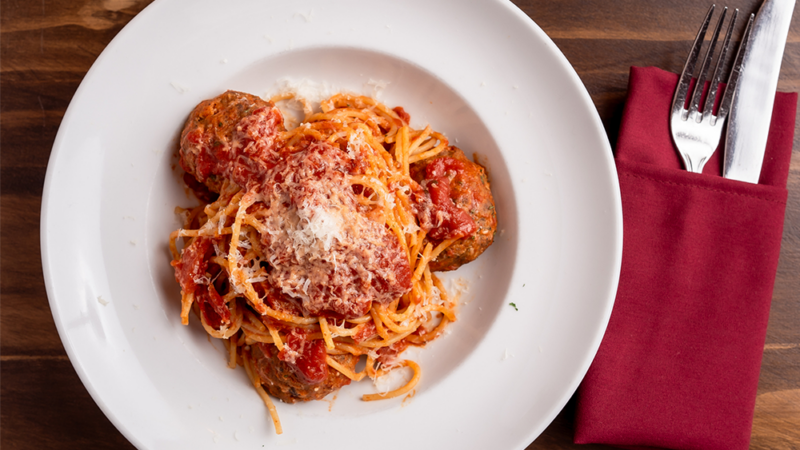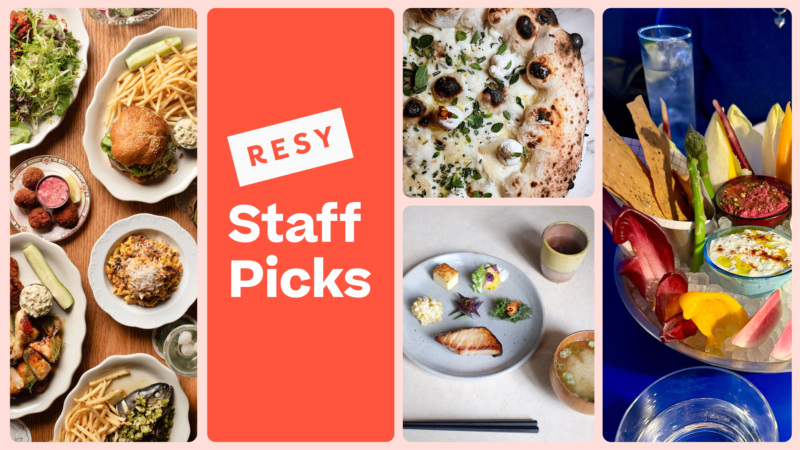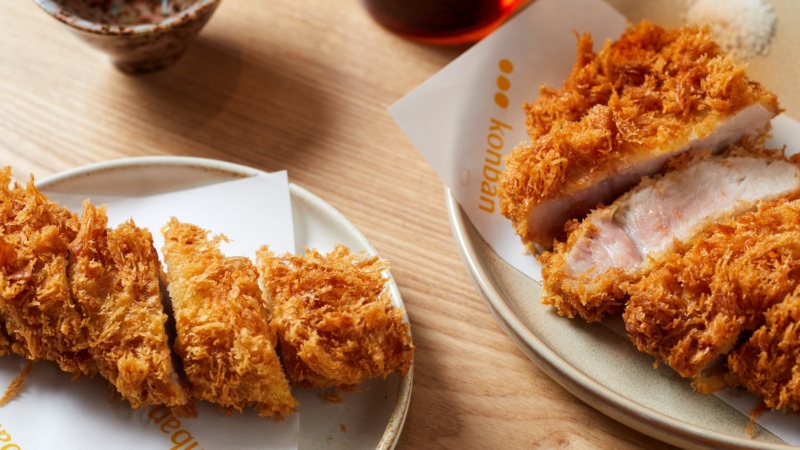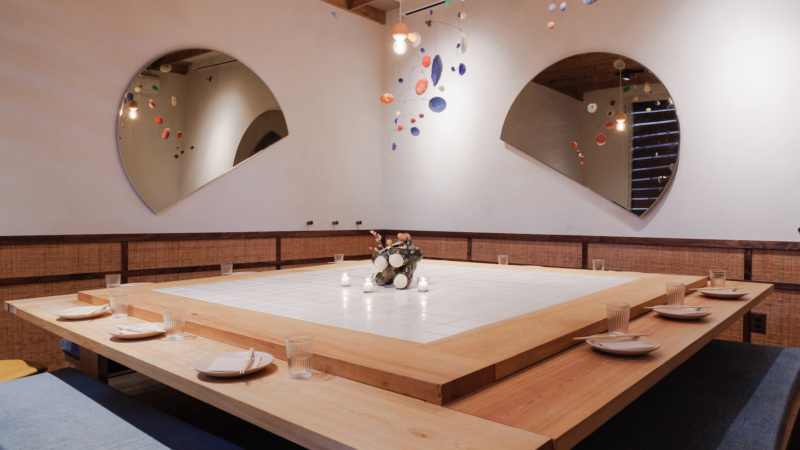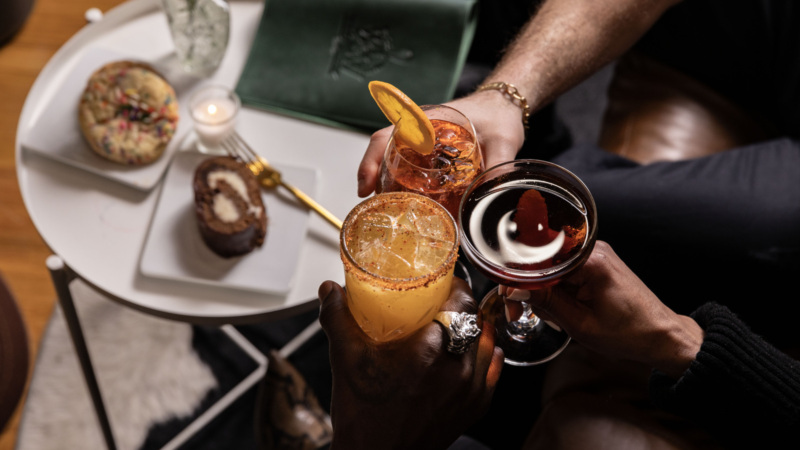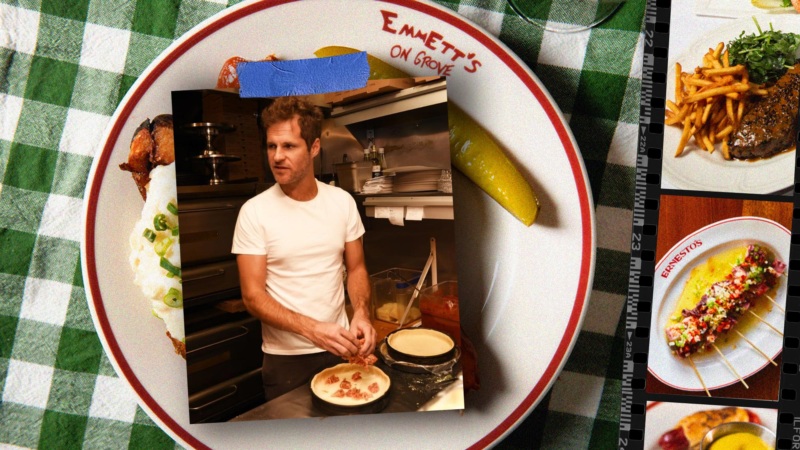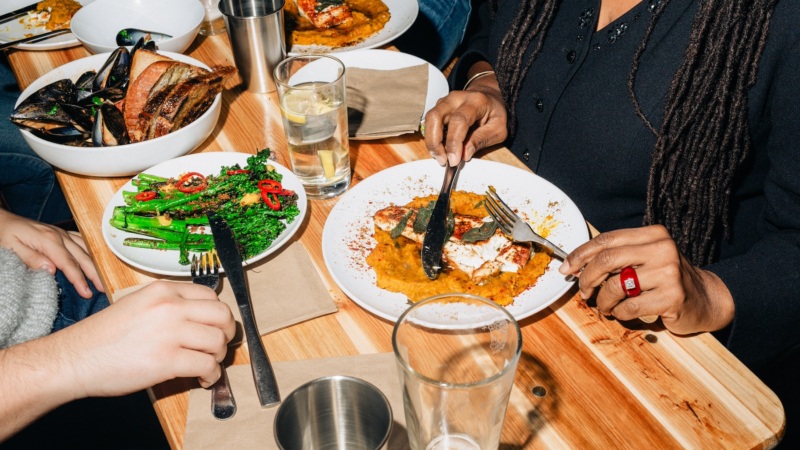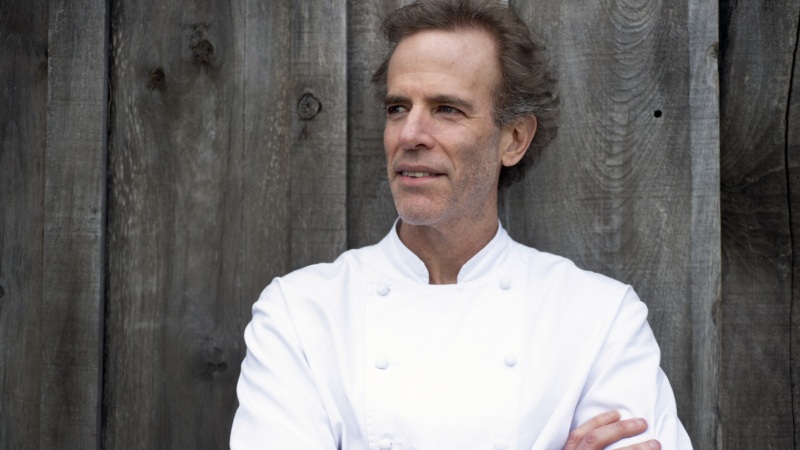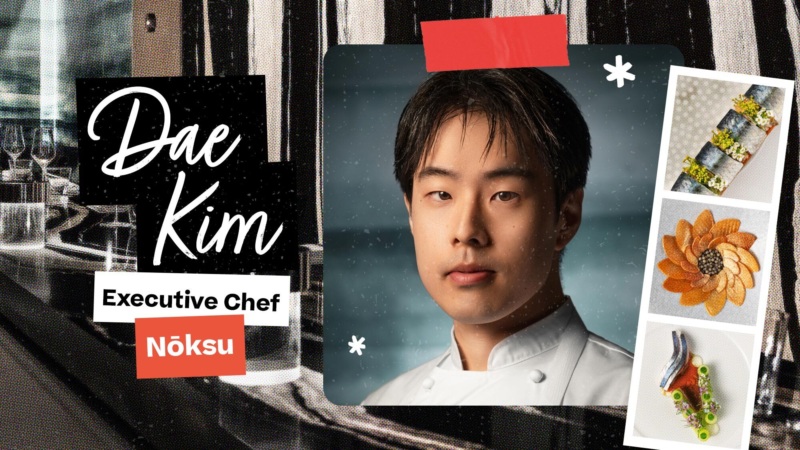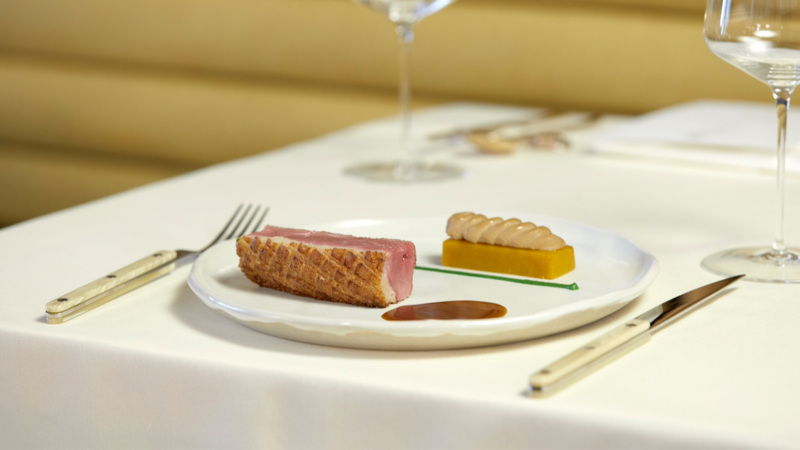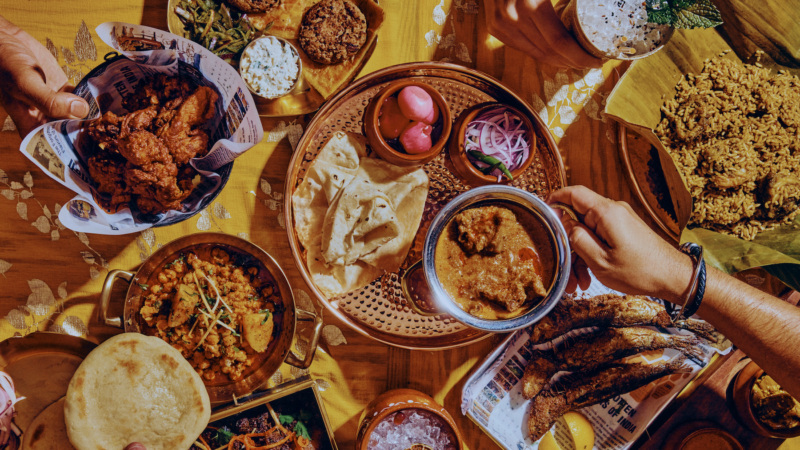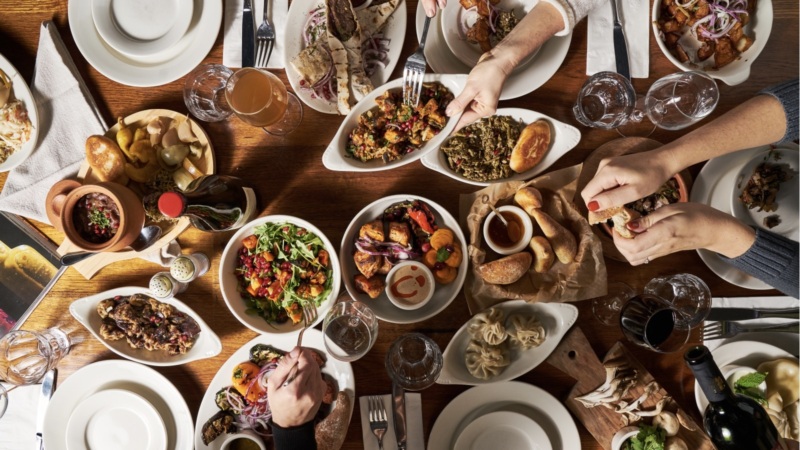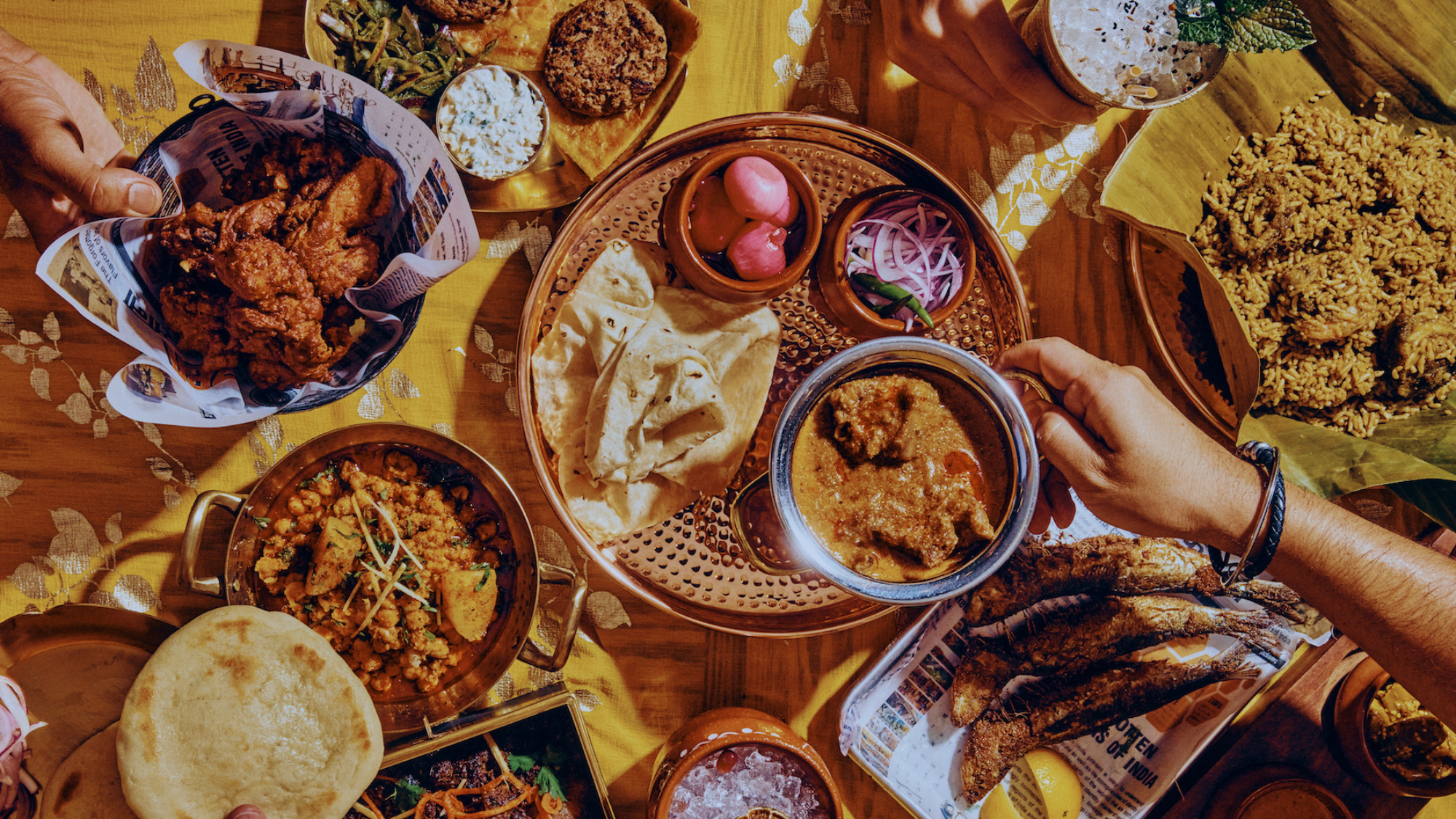
All About Jazba, the Latest From the Junoon Team
In this edition of the Resy Rundown, we sat down with the father-son duo — Rajesh and Akshay Bhardwaj — behind Michelin-approved Junoon to chat about their newest restaurant, Jazba, opening in the East Village on Tuesday, Oct. 3. A bit more casual than Junoon, Jazba is inspired by Indian street hawker cuisine with a huge variety of traditionally made and carefully sourced dishes.
Here’s everything you need to know about Jazba before you go.
Note: Rajesh, who is the CEO and founder, and Akshay, who is the executive chef, have the same last name, so for clarity we refer to them by their first names.
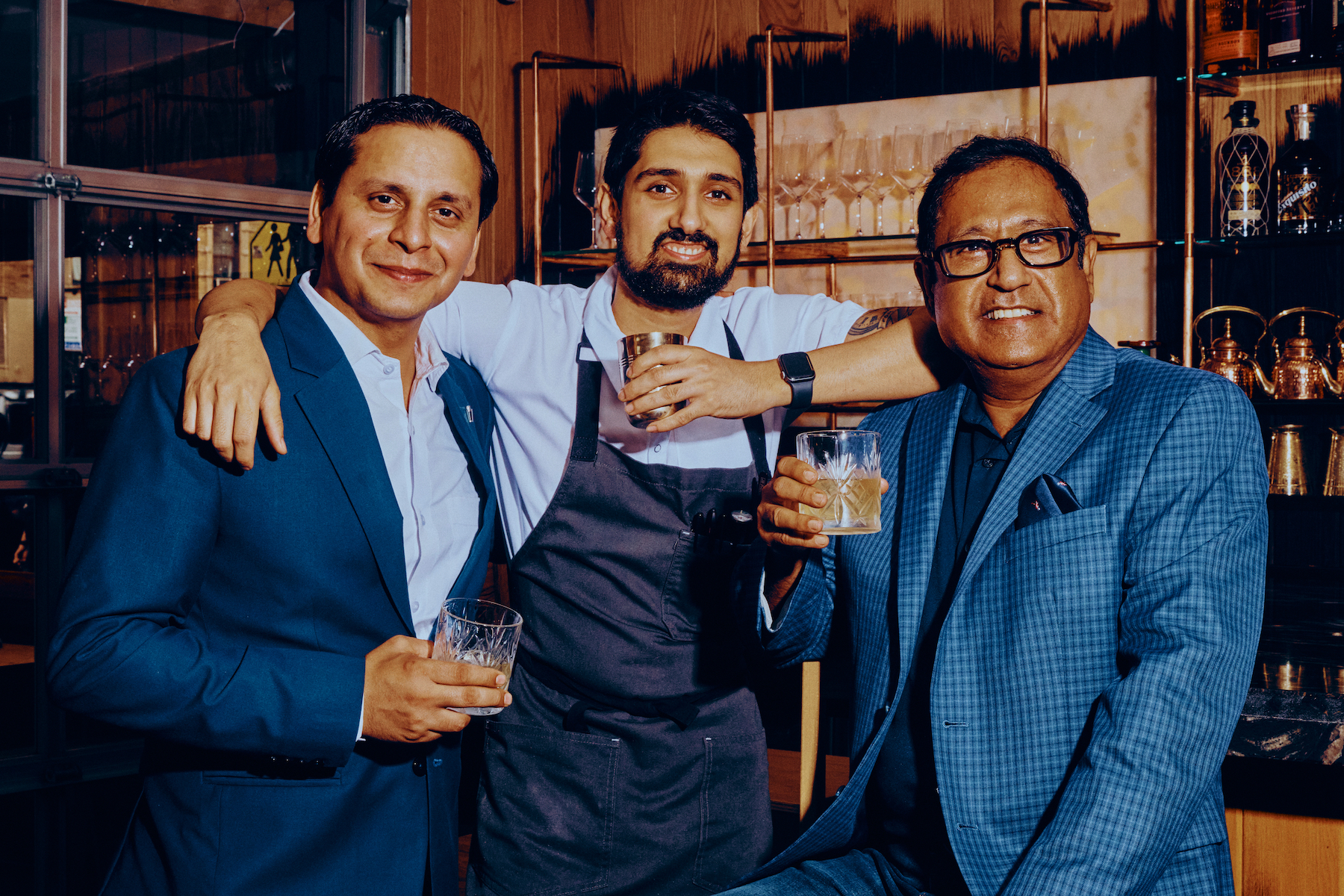
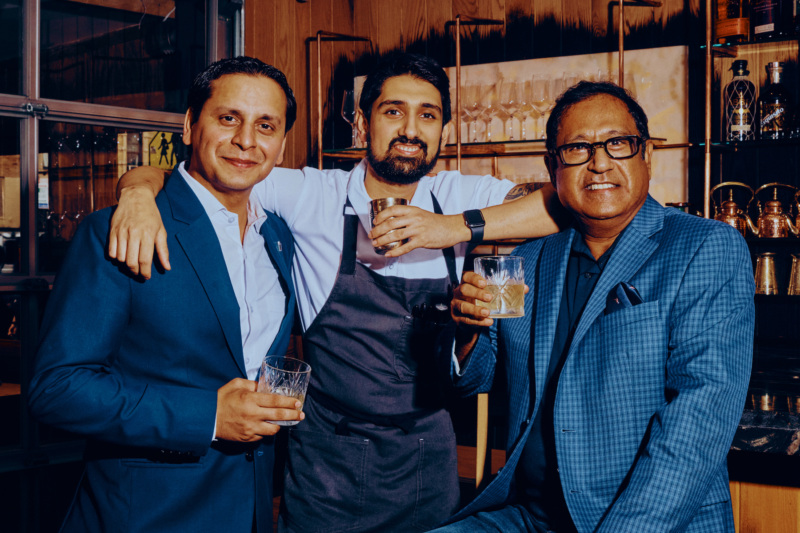
1. To open Jazba, the team went straight to the source.
When the Jazba team decided to focus on the cuisine of Indian street hawkers, they knew that recreating these dishes as closely as possible to what you can have in India would be incredibly important. So a trip to India for the whole team was in order, to try the different food stalls and decide what would make sense to bring to their New York audience.
Some of the street food hawkers around where Rajesh was born, in New Delhi, have been there for more than 100 years, he says.
“[It’s run by the] fourth generation or fifth generation serving unique dishes,” Rajesh says. “Those places are all very, very unique with what they’re serving and they’re [usually] only known for one of those dishes.”
Lines for dishes like lassi, paratha, fried chicken, and chaat can sometimes reach 50 or 60 people, no matter what time it is, Rajesh says. Favorites and loyalties run so deep that some diners are willing to travel an extra distance or go out of their way to go to their favorite stalls, both fiercely protecting and gleefully sharing their experiences with friends and family.
The recipes can be so private and the styles so specific that the Jazba team made the decision to bring over several people who have worked in those specific stalls in India to cook in their new restaurant permanently.
“We have about three or four people who have specialized in and worked in some of these places. They’ll be recreating the food. They are very protective about their recipes, so you have to visit a few times. Then, if they’re kind enough, they’ll give you some hints of what to do,” Rajesh says.
Chef Sanjeev Kapoor, a longtime friend of Rajesh’s and a celebrity figure in the Indian food scene and beyond, helped them secure these relationships and made many of the introductions.
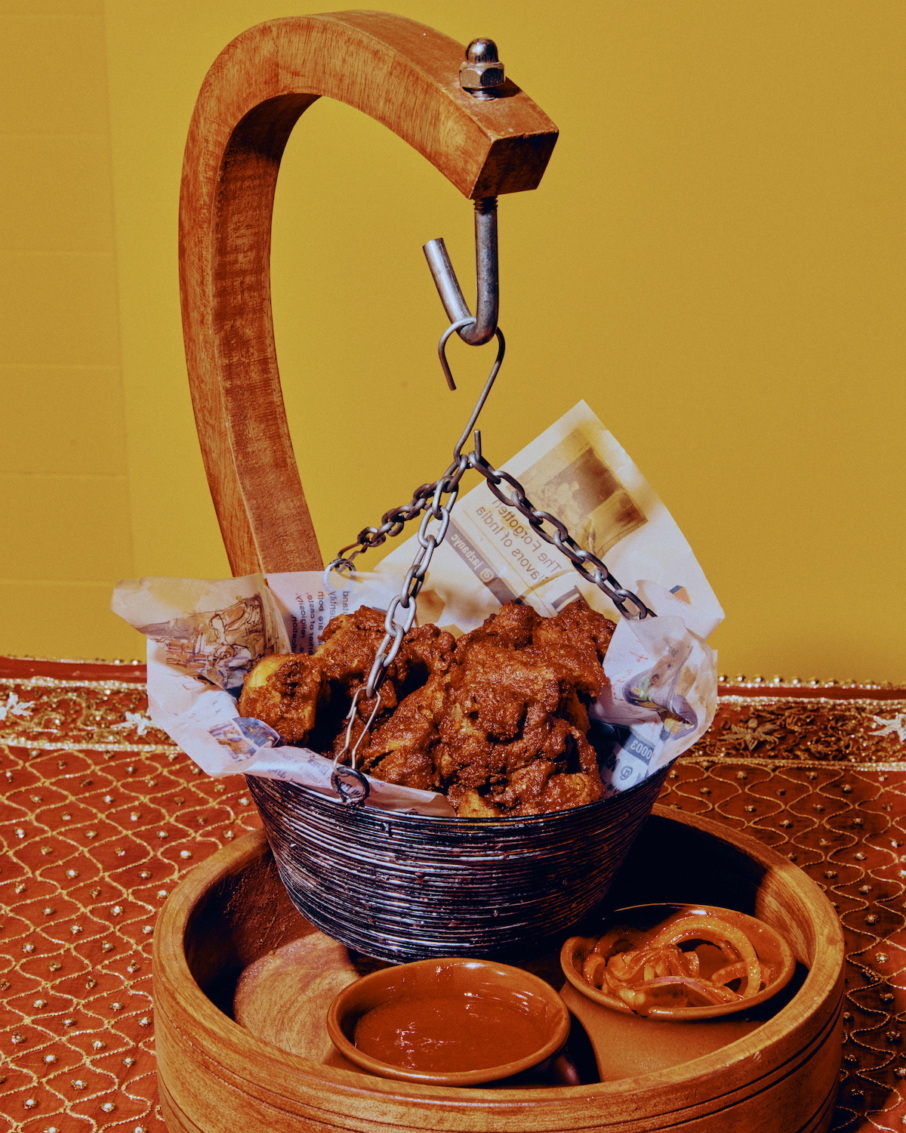
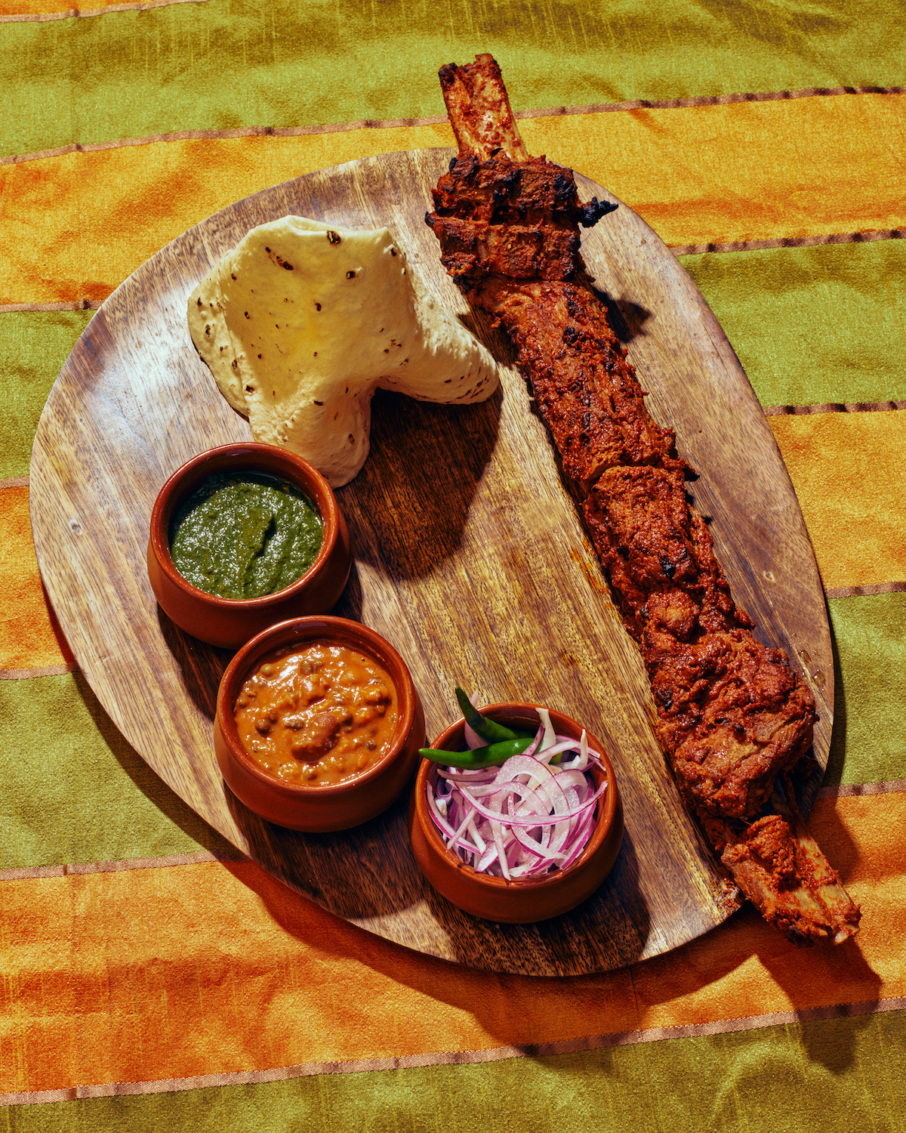


2. They’re highly committed to recreating the Indian street hawker stall experience.
The menu is split into “half ticket” and “whole ticket” sections instead of small plates and entrées. This is another concept taken from hawker culture, where if you want a smaller portion of whatever dish you’re ordering, they’ll tear your ticket in half so that the chef knows how much to make.
At Jazba, the Empire fried chicken is fried golden and served with a red chile dip, inspired by what Rajesh and Akshay say is the best dish at the Empire Restaurant stand in Bangalore, India.
“If you go to them at night you’ll see a queue, and all people want, despite the other things he serves, is his fried chicken,” Rajesh says.
The inspiration for Jazba’s sardines, served with a coastal-style cucumber salad, comes from a South Indian beach shack that serves only fried fish, sardines, and shrimp in a spicy batter. There’s also seafood biryani, basket chaat, Atari paneer with housemade cheese, and more on the menu.
Maintaining the authenticity of the original experience you can have with these foods in India was vital, they say, and Jazba plans to serve things just as they are served in hawker stalls.
“We are just going to give the food as it comes there. Nothing has been changed, it’ll be a complete, composed meal,” Rajesh says. For example, many of the dishes come pre-paired with whatever bread you’d be served at the stall, like the haleem, a slow-cooked goat stew that comes with Taftan bread.
The restaurant’s mixologist, Hemant Pathak, also traveled to India to research and develop Jazba’s drink menu. The list is designed to look like an old map, showcasing drinks from different areas of the country and representing each region and the cuisine they serve, and will feature wine, beer, and cocktails.
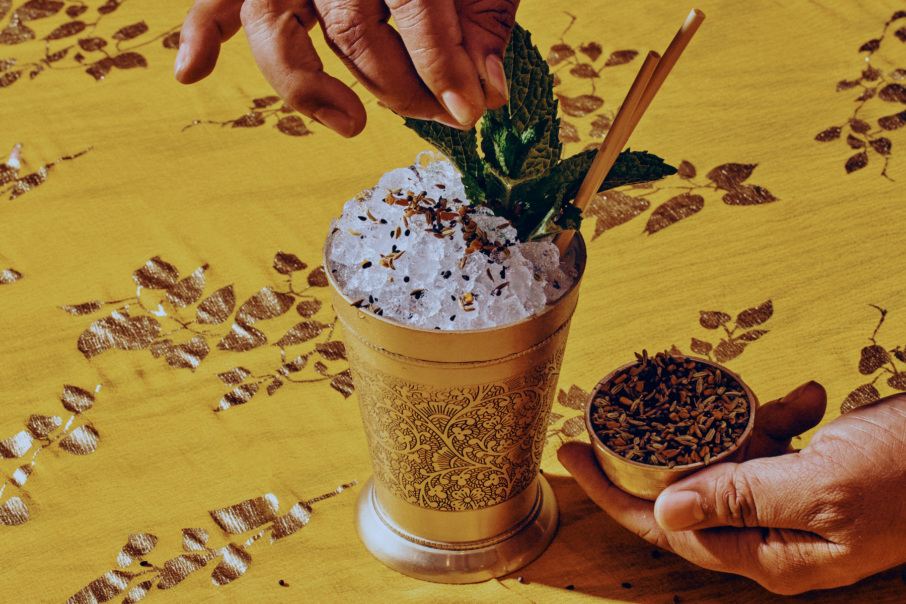
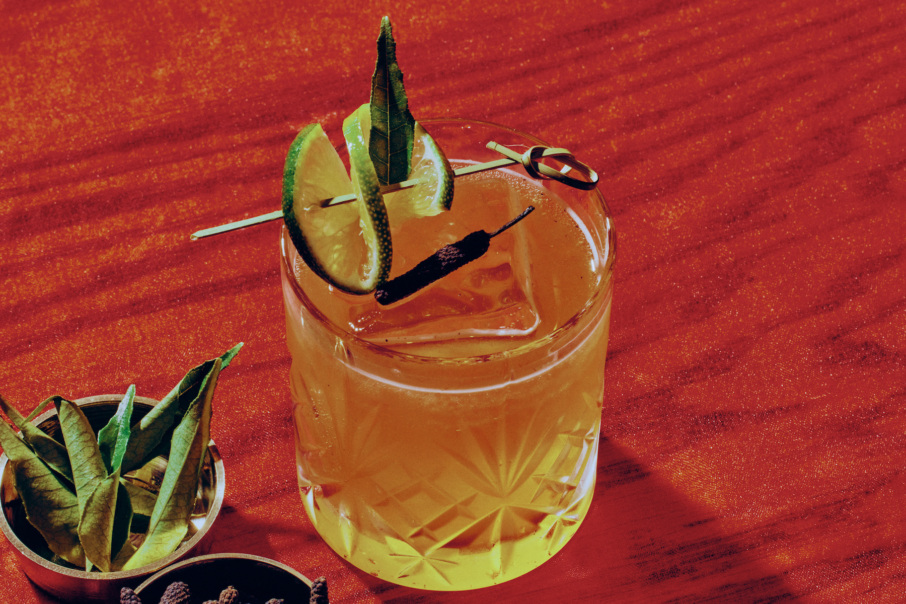
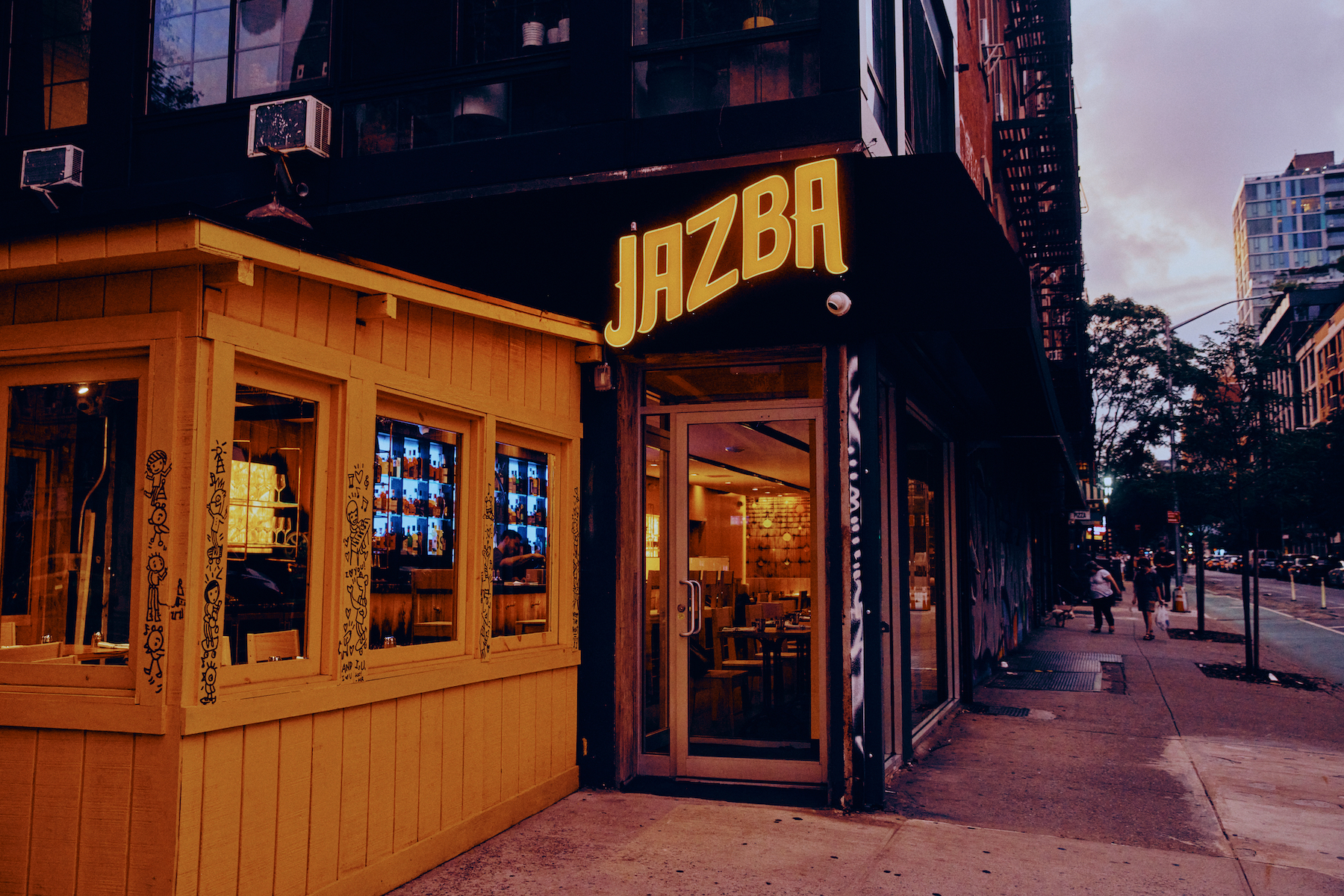
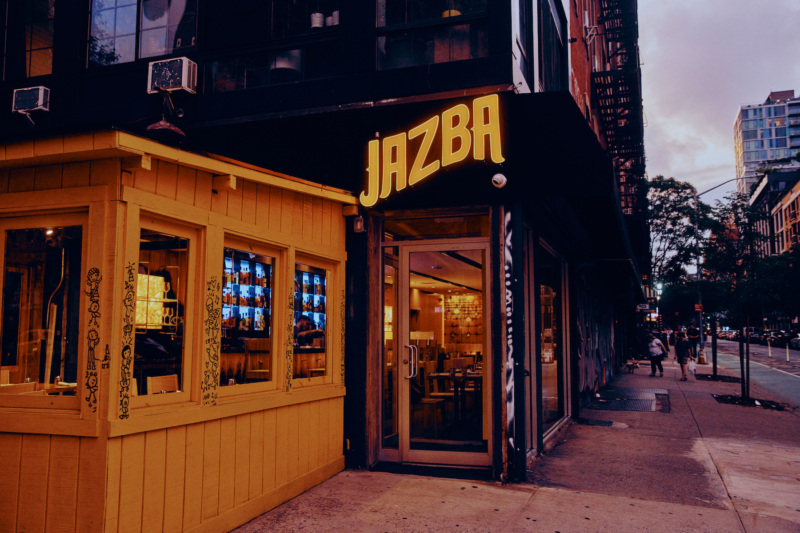
3. The interior is as much of a trip as the menu.
The inside of Jazba is designed to transport you just as much as the food does.
“It’s very vibrant in color,” Akshay says. Deep oranges, yellows, and reds abound — all colors of mainstay Indian spices. “When you walk in you see the red, which represents red chile, the yellow, which represents saffron, and the green from green cardamom,” Rajesh says. The restaurant also features a burnt hardwood bar top, created especially for this space. Even this isn’t just simply for aesthetics; the Jazba team says that they were inspired by the open flames that hawkers so often cook on.
The pièce de résistance, however, has to be a specially commissioned mural covering the walls. It depicts hawkers cooking their food over open flames and it was painted by The Mural Co., led by Tessa Larrae Broyles.
The tables and chairs are smooth, plain wood, perfect for highlighting the bright colors of the dishes and glassware themselves, many of which were sourced from India.
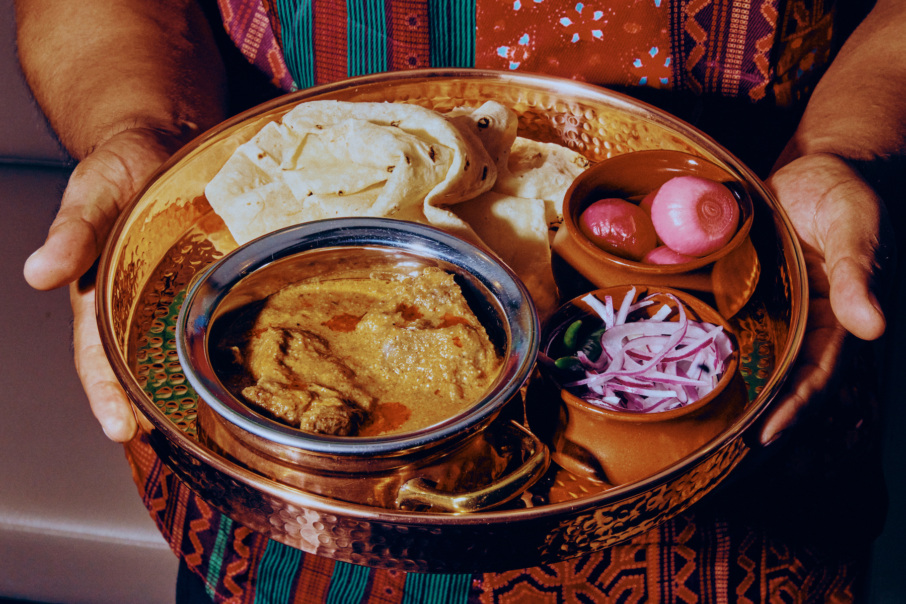
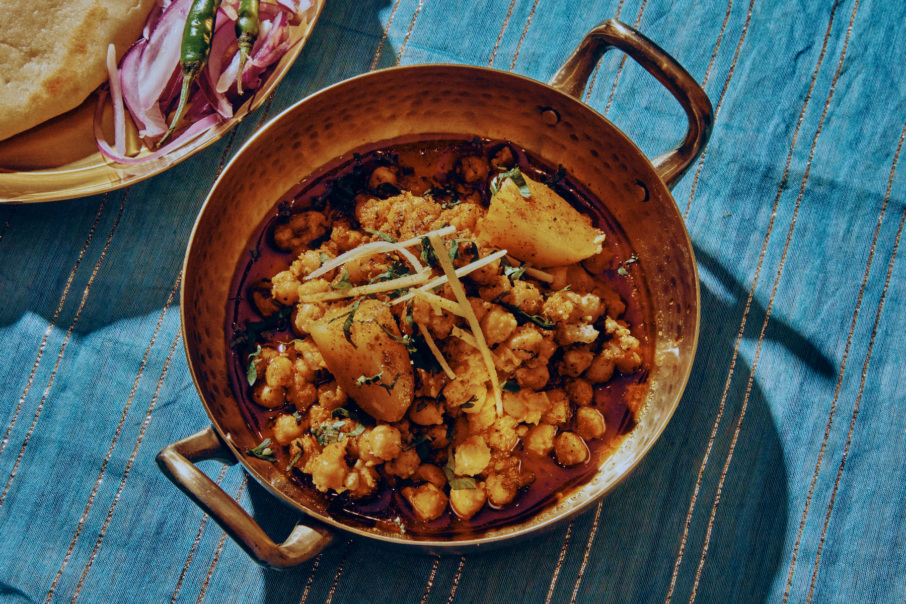
4. Jazba will differ from Junoon in substantial ways.
Despite having similar names — Junoon means “passion with craziness” and Jazba means “passion with enthusiasm,” Rajesh says — that’s where the similarities end.
Whereas Junoon tries to reinvent the wheel when it comes to contemporary Indian cuisine, Jazba will keep things much more traditional. The service at Jazba is also more relaxed, without any of the prix-fixe menus or lengthy wine lists that you’d find at Junoon.
“Jazba is very authentic to a T,” Akshay says. “The way the dish was made and has been passed down from generation to generation is the way that we want to showcase it here.”
Jazba will be open for dinner daily, with brunch and lunch soon to follow.
Ellie Plass is a freelance writer based in Brooklyn. Follow her on Instagram and X (formerly Twitter). Follow Resy, too.
Resy Presents
Everywhere We Want to Dine This Fall
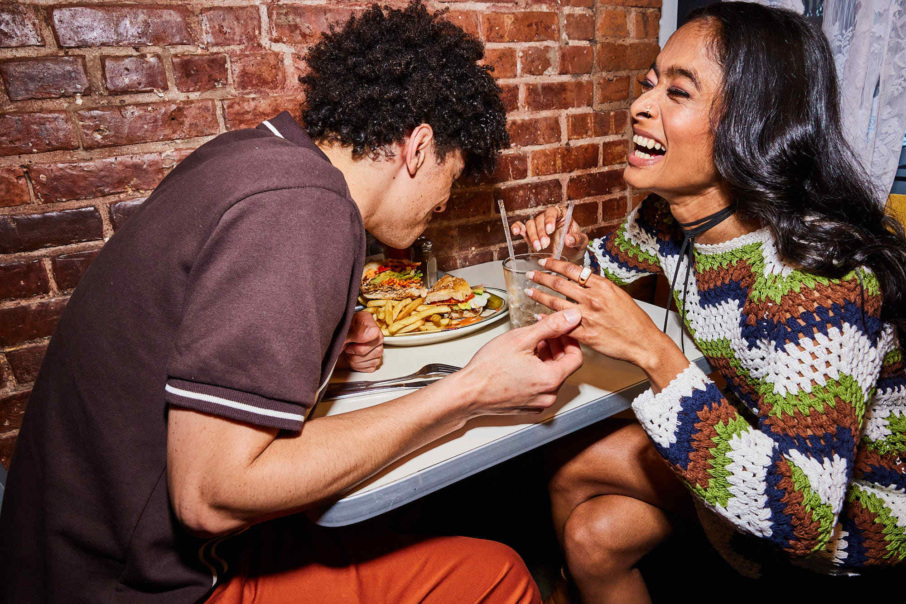
- New York’s Newest Restaurant Openings, Now on Resy
- 18 Restaurants Across America We Can’t Wait To Try Right Now
- The Resy Guide to Autumn in New York
- Where New York’s Top Chefs Plan to Dine This Fall
- The Resy Guide to Where (and What) to Drink This Fall in New York
- The Resy Guide to Cozy Noodle Soups in New York
- The Resy Guide to Italian Pasta in New York
- All About Nōksu, the Chef’s Tasting Counter Hidden Inside a New York City Subway Station
- Bangkok Supper Club Embraces Street Food, As You’ve Never Tasted It Before
- Delmonico’s Returns Again, With an Extra Helping of History



